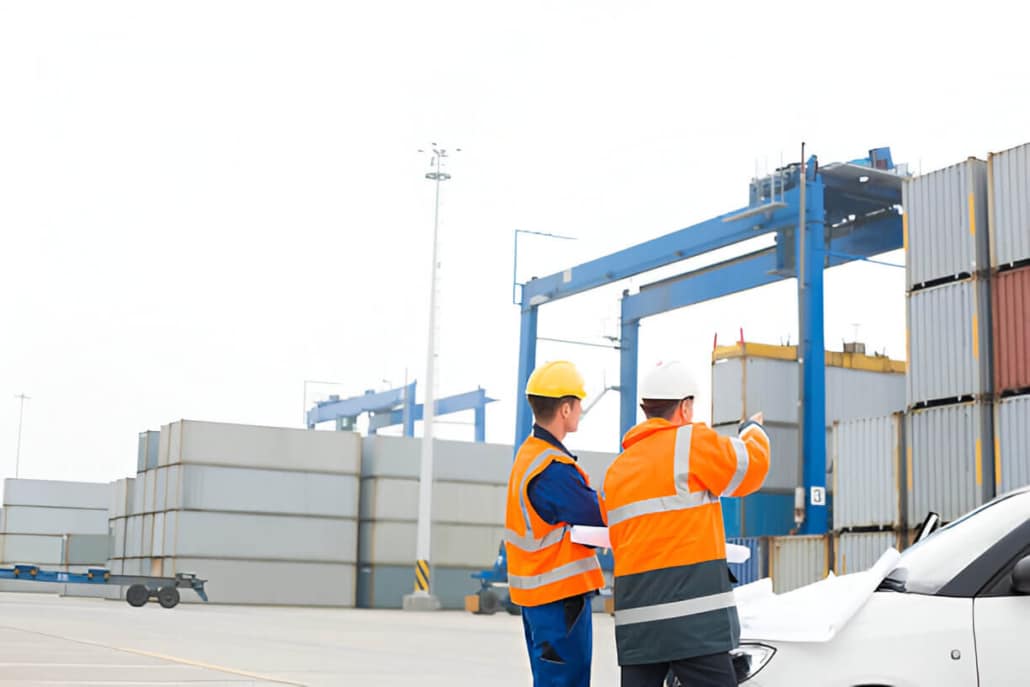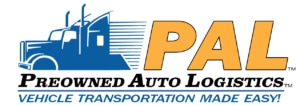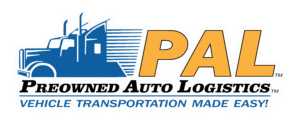10 Key Considerations When Choosing the Right Auto Transport Company
10 Key Considerations When Choosing the Right Auto Transport Company
Moving a vehicle across the country may appear simple, but the experience can significantly depend on your chosen auto transport company. Whether relocating for work, purchasing a car from another state, or sending one to a family member, selecting the right company is vital. With a growing number of vehicle transport services, consumers often find themselves overwhelmed by choices. This decision is significant, as your car is a major investment. This guide will highlight ten essential factors to consider when selecting an auto transport company, including reputation, insurance, and contract terms.
# 1. Reputation and Customer Reviews
In the digital era, a company’s online reputation is its most genuine business card. Before choosing an auto transport service, take the time to research previous customer experiences. Begin by reviewing feedback on various platforms:
Start by checking reviews on various platforms:
- Google Business reviews
- Better Business Bureau (BBB) ratings
- Transport review sites like Transport Reviews
- Social media interactions
- Auto transport forums
When assessing reviews, focus on specific feedback rather than just star ratings, particularly regarding:
- Handling of unexpected issues
- Delivery timeliness versus estimates
- Vehicle condition upon arrival
- Communication during the shipping process
- Resolution of damage claims
While even top companies may receive negative reviews, look for recurring complaints. Frequent issues with vehicle damage, delays, or poor communication are significant warning signs.
Company reputation and experience
Experience in vehicle transport directly correlates with expertise in managing logistical challenges. Established companies have likely navigated a wide range of shipping scenarios. Consider these factors when assessing a company’s reputation:
- Years in business (5+ years suggests stability)
- Specialization in specific vehicle types or routes
- Industry affiliations and certifications
- Awards or recognition from industry bodies
- Size of their carrier network
- Annual vehicle shipping volume
A reputable auto transport company will be transparent about its history and willingly share credentials. Be cautious of newer companies without established track records, as vehicle shipping requires well-developed systems and relationships with reliable carriers nationwide.
2. Licensing and Insurance
Legal compliance isn’t optional in the auto transport industry but is essential for your protection. Every legitimate vehicle transport service must be registered with the Federal Motor Carrier Safety Administration (FMCSA) and possess a valid MC (Motor Carrier) number.
To verify a company’s credentials:
- Ask for their MC number and DOT (Department of Transportation) number
- Visit the FMCSA website to verify their active status
- Check for any safety violations or compliance issues
- Confirm they’re authorized for interstate transport
Operating without proper licensing isn’t just illegal but indicates a company that compromises on quality in other areas. Never work with an auto shipper that can not provide valid registration information.
Understanding insurance coverage
Auto transport insurance represents your financial safety net should anything go wrong during transit. While accidents are rare with professional carriers, comprehensive coverage provides essential protection for your investment.
When evaluating insurance options:
- Request proof of the carrier’s cargo insurance policy
- Verify minimum coverage amounts (typically $250,000-$1,000,000)
- Understand deductibles and claim processes
- Clarify what damages are covered and excluded
- Determine if supplemental insurance is recommended
- Check if your auto insurance provides any overlapping coverage
The best auto transport companies provide detailed information about their insurance policies upfront and include primary carrier insurance in their quoted prices. Be wary of companies that evade insurance questions or offer unusually low coverage limits.
3. Transport Options and Services
The type of carrier that transports your vehicle impacts both protection level and cost. Understanding the differences helps you make the appropriate choice based on your vehicle’s value and priorities.
Open transport:
Open transport is the most common and economical option for loading vehicles onto multi-car, open-air carriers. While this method exposes your vehicle to road debris, weather elements, and dust, it’s typically 30-50% less expensive than enclosed options. This makes it ideal for standard everyday vehicles and budget-conscious shoppers. Open transport is also more readily available and has faster pickup times.
Enclosed transport:
Enclosed transport is the premium option, providing complete protection, as vehicles are fully shielded from weather and road elements. This method offers reduced risk of damage from debris or environmental factors and often includes higher insurance coverage limits. It’s recommended for luxury, classic, exotic, or high-value vehicles and usually involves more experienced drivers and specialized equipment.
For most standard vehicles, open transport provides a reasonable balance of protection and affordability. However, if your car exceeds $50,000 in value or requires special care, the additional cost of enclosed shipping may be justified for the enhanced protection.
Door-to-door vs. terminal-to-terminal shipping
The pickup and delivery method you choose affects both convenience and pricing. Consider your schedule flexibility and location when deciding between these options.
Door-to-door service:
- The vehicle is picked up and delivered as close to your specified locations as legally possible
- Maximizes convenience by eliminating the need to travel to terminals
- Saves time and the hassle of arranging transportation to/from terminals
- Typically, it costs more than terminal options
- There may be some limitations in areas with restricted truck access
Terminal-to-terminal service:
- Requires dropping off and picking up your vehicle at designated company terminals
- Often less expensive than door-to-door options
- This may involve additional storage fees if you don’t retrieve your vehicle promptly
- Terminals may have limited hours and be located in industrial areas
- It could require additional travel arrangements to reach the terminals
While door-to-door service has become the industry standard due to its convenience, terminal options can work well for flexible schedules and budget-conscious consumers near significant transport hubs.

4. Pricing and Quotes
The car shipping process involves numerous variables that influence pricing. Knowing these factors helps you evaluate whether quotes are reasonable and appropriate for your situation.
Key determinants of auto transport pricing include:
Distance is typically the most significant factor, with per-mile rates decreasing as total distance increases. Vehicle size and weight matter because larger, heavier vehicles occupy more space and require more fuel, resulting in higher transport costs. Vehicle type also impacts pricing, as specialty vehicles, modified cars, or those with extremely low clearance may require special handling and equipment.
Transport type affects cost significantly, with enclosed transport generally costing 30-50% more than open transport. Route popularity also plays a role, as significant routes between population centers cost less than shipments to or from rural areas. Seasonality causes prices to fluctuate based on demand, with summer months and January typically seeing higher rates.
Fuel prices directly impact transport costs through fluctuations in diesel prices. Delivery timeframe influences pricing, with expedited shipping commanding premium rates. Additional services such as door-to-door delivery, express service, or guaranteed pickup dates add to the base price.
A transparent auto transport company will explain how these factors affect your quote rather than simply providing a number without context.
Avoiding unusual quotes
In the competitive vehicle transport industry, artificially low quotes represent one of the most common marketing tactics. Understanding how to identify and avoid these deceptive practices saves money and frustration.
Warning signs of potentially deceptive pricing include quotes substantially lower (15%+ below) than other estimates and brokers who require large upfront deposits before finding a carrier. Be cautious of hidden fees revealed only after booking, refusal to provide a binding price guarantee, and pressure tactics urging immediate booking to “lock in” special rates. Watch for vague contract language regarding potential price adjustments and prices that seem too good to be true, as they usually are.
The most common bait-and-switch tactic involves quoting an unrealistically low price to secure your business, then raising the price just before transport, claiming “changed conditions” or “carrier requirements.” By this point, many customers feel trapped by time constraints and reluctantly pay the increased amount.
Reputable auto transport companies offer competitive but realistic pricing and fully disclose all potential fees upfront. They should provide written quotes detailing all charges and conditions.
5. Delivery Time and Scheduling
Understanding realistic timeframes helps set expectations and prevents unnecessary stress during auto transport. While exact transit times vary based on numerous factors, experienced companies can provide reasonably accurate estimates.
Typical auto transport timeframes by distance:
- 0-500 miles: 1-2 days in transit
- 500-1000 miles: 2-4 days in transit
- 1000-1500 miles: 3-5 days in transit
- 1500-2000 miles: 4-6 days in transit
- 2000+ miles: 5-8 days in transit
Beyond distance, several factors can extend these estimates:
Seasonal demand fluctuations, weather conditions, and natural disasters can all cause delays. Rural pickup or delivery locations often add time, as do interstate regulations and weight station inspections. Driver hour-of-service regulations limit continuous driving time, while mechanical issues, traffic conditions, and multiple vehicle pickups and deliveries on the same truck can further extend transit times.
The timeline also includes the initial pickup window, which typically ranges from 1-5 business days from booking, depending on your location’s proximity to major transport routes.
Reputable vehicle transport services provide realistic timeline ranges rather than promising unrealistically fast deliveries they cannot guarantee. Be wary of companies offering transit times significantly faster than industry standards without substantial premium pricing.
Flexibility with pickup and drop-off dates
The auto transport industry operates on a dynamic scheduling system affected by numerous logistical variables. Understanding the importance of flexibility and how it impacts your shipment can save money and frustration.
Benefits of schedule flexibility include lower overall transport costs and a higher likelihood of the first available carrier assignment. Customers who can be flexible often experience reduced wait times for vehicle pickup, better carrier options with established safety records, and fewer cancellations or rescheduling issues.
Most transport companies offer tiered pricing based on timing flexibility:
- Economy: Widest pickup window (typically 1-5 days), lowest cost
- Standard: Moderate flexibility (typically 1-3 days), mid-range pricing
- Expedited: Specific pickup dates, premium pricing
- Guaranteed: Exact dates with financial penalties for missed deadlines, highest pricing
Providing a 3-5 day pickup window for non-urgent shipments generally secures the best balance of reasonable pricing and reliable service. Narrow windows or specific date requirements often command 25-100% price premiums above standard rates.
Communicate any absolute deadline requirements clearly during the quote process, as these significantly impact carrier selection and pricing.
6. Vehicle Preparation and Inspection
Properly preparing your vehicle before shipping ensures a smooth process and minimizes the risk of complications or disputes about vehicle conditions. Follow these essential preparation steps:
Mechanical preparation:
Before transport, ensure your vehicle is mechanically sound by checking that the battery is charged and adequately secured and repairing any fluid leaks. Maintain approximately ¼ tank of fuel—just enough for loading and unloading without adding excessive weight. Disable alarm systems or provide clear instructions for deactivation, verify that tires are correctly inflated, and address any mechanical issues that could complicate loading or unloading.
Exterior preparation:
Thoroughly wash your vehicle to facilitate accurate condition documentation, and remove or secure all external accessories and custom parts that could be damaged during transport. When possible, fold in side mirrors and retract antennas to prevent damage. Before transport, carefully note and photograph any existing damage, scratches, or imperfections to establish the pre-shipping condition.
Interior preparation:
Remove all personal items and valuables from your vehicle, as most auto transport insurance policies specifically exclude these items. Secure or remove loose parts and aftermarket accessories that could become dislodged during transit. Take out electronic toll passes, parking permits, and garage clickers to prevent loss or unauthorized use. Provide an extra key for the transport driver and remove any loose items that could cause damage during transport. A clean, properly prepared vehicle prevents additional charges for excess weight and facilitates a more accurate pre-transport inspection.
Bill of lading and condition report
Documentation serves as proof of vehicle condition before and after transport, making it essential to protect your interests and facilitate any necessary claims.
The Bill of Lading (BOL) is the most critical document in the car shipping process, serving as both a receipt and a contract. It typically includes complete vehicle details (make, model, VIN, color), pickup and delivery addresses and dates, transport company information and driver identification, detailed notes about vehicle condition with diagrams, existing damage notation with photographs, and signatures from both driver and vehicle owner.
During both pickup and delivery, you should conduct a thorough inspection alongside the driver, document any existing damage with clear photographs, ensure all damage, regardless of size, is noted on the condition report, take photos of all four sides of the vehicle plus roof, capture close-ups of any existing damage, verify odometer reading is correctly recorded, and keep copies of all signed documents.
Never sign a blank or incomplete inspection report; never sign the delivery receipt before thoroughly inspecting your vehicle, including checking under the car for possible fluid leaks or undercarriage damage.

7. Customer Support and Communication
The quality of communication often differentiates exceptional auto transport companies from mediocre ones. Reliable transporters understand that vehicle shipping involves significant customer investment and emotional attachment.
Indicators of excellent communication systems include multiple contact methods (phone, email, text, chat), extended customer service hours beyond 9-5, weekend availability for urgent situations, dedicated transport coordinators rather than general representatives, prompt response to inquiries (within hours, not days), proactive updates rather than requiring customer follow-up, clear escalation procedures for resolving issues, and direct access to decision-makers when needed.
Before booking, test a company’s responsiveness by calling outside regular business hours, sending email inquiries, and evaluating how thoroughly they answer your questions. The quality of pre-booking communication typically reflects what you’ll experience during the transport process.
Tracking and real-time updates
Modern technology has transformed vehicle transport visibility, with the best auto transport companies offering sophisticated tracking systems that provide peace of mind throughout the shipping process.
Effective tracking systems typically provide GPS-based location updates, estimated time of arrival adjustments, automated notifications for key milestones, driver contact information when appropriate, mobile apps or customer portals for 24/7 status checking, proactive notification of any delays or route changes, and photo updates during transport (with premium services).
During the quote process, ask specific questions about what tracking information will be available, how frequently it updates, and how updates are communicated. Companies offering transparent, technology-enabled tracking typically demonstrate professionalism and operational excellence.
8. Contract Terms and Policies
The transport agreement establishes your rights and the company’s obligations, making thorough contract review essential before committing to any service. Pay particular attention to these critical sections:
Pricing guarantees:
When reviewing pricing terms, determine whether quoted prices are binding or estimates and understand what circumstances might trigger price adjustments. Check if additional fees apply for accessibility issues, expedited service, or oversized vehicles, and confirm whether fuel surcharges are included in the quoted price or charged separately.
Carrier assignment:
Clarify if the company operates as a broker or direct carrier, and understand their criteria for selecting third-party carriers. Determine whether you can request or refuse specific carriers, and verify what checks are performed on carrier insurance and safety records before assignment.
Liability terms:
Examine which damages are covered and excluded under the contract, noting any coverage limitations for certain vehicle areas. Understand how pre-existing damage is distinguished from transport damage, what documentation you’ll need for claim approval, and the procedure for noting exceptions at delivery.
Service level guarantees:
Investigate what happens if pickup or delivery occurs outside promised windows, including any financial penalties or compensations for delays. Understand what constitutes acceptable reasons for timeline adjustments and how force majeure situations like adverse weather or road closures are handled.
Never sign agreements with vague language or verbal promises not reflected in the written contract. Request clarification on any confusing terms before booking.
Cancellation and Refund Policies
Circumstances change, and understanding your options for modifying or canceling shipments helps avoid unexpected penalties or disputes.
Key cancellation policy elements to evaluate:
Understanding cancellation policies requires examining the timeframe allowed for free cancellation after booking and any graduated fee structure based on when you cancel. Review deposit refundability conditions, documentation needed for justified cancellations, and the process for rescheduling versus canceling outright. Also, consider how carrier assignment affects your cancellation options and what provisions exist for weather-related or emergency cancellations.
Most reputable auto transport companies provide:
Reputable companies typically offer full refunds before carrier assignment and reasonable partial refunds for cancellations after assignment but before pickup. They provide written confirmation of cancellation and refund details and flexible rescheduling options that involve minimal or no fees.
Be particularly cautious of companies requiring large non-refundable deposits or imposing excessive cancellation penalties regardless of timing or circumstances.
9. Why Choose Preowned Auto Logistics?
When evaluating the landscape of vehicle transport services, Preowned Auto Logistics stands out through a demonstrated commitment to excellence across all criteria discussed in this guide.
Proven Industry Experience with a Customer-Focused Approach
For years in the auto transport industry, Preowned Auto Logistics has developed systems and relationships that deliver consistent, high-quality service. This experience translates to extensive carrier networks spanning all significant routes, refined processes for handling exceptional circumstances, established relationships with reputable carriers, a deep understanding of seasonal and regional transport challenges, the ability to coordinate complex multi-vehicle shipments, and expertise in handling specialty and high-value vehicles.
Our customer-centric philosophy places your satisfaction at the center of every decision, from initial quote to final delivery.
Transparent Pricing and Full Insurance Coverage
Preowned Auto Logistics believes in straightforward, honest pricing without hidden fees or deceptive practices: clear, itemized quotes with guaranteed pricing, no unexpected surcharges or last-minute adjustments, competitively priced services reflecting actual transport costs, transparent explanation of all cost components, and flexible options to meet different budget requirements.
Our comprehensive insurance coverage provides genuine peace of mind: complete value protection for vehicles during transport, straightforward, simple claims process in the rare event of damage, primary carrier coverage included in all shipments, additional coverage options for high-value vehicles, and all carriers fully vetted for insurance compliance.
Reliable, Efficient, and Professional Vehicle Shipping Services
Our operational excellence ensures your vehicle arrives safely and on schedule: carefully selected carrier partners with proven safety records, rigorous inspection protocols at pickup and delivery, advanced tracking technology providing real-time updates, professional drivers trained in proper vehicle handling, dedicated transport coordinators overseeing each shipment, proactive communication throughout the shipping process, and flexible scheduling options to meet your timeline needs.
The difference is evident in our consistently positive customer feedback, and high rate of repeat business from satisfied clients who trust us with their vehicle shipping needs time after time.
Conclusion
Selecting the right auto transport company involves numerous considerations beyond introductory pricing. By thoroughly evaluating reputation, licensing, service options, pricing transparency, and contract terms, you can significantly increase your chances of a positive vehicle shipping experience.
Remember these essential takeaways when making your decision: research company reputation through multiple independent sources, verify proper licensing and insurance documentation, choose appropriate transport options based on your vehicle value and needs, understand all pricing components and avoid suspiciously low quotes, set realistic expectations for transit times, properly prepare your vehicle and document its condition, evaluate communication systems and tracking capabilities, review all contract terms before committing, and consider the total value proposition, not just the lowest price.
When you balance these considerations, you’ll find that investing time in selecting a reputable, professional auto transport service like Preowned Auto Logistics pays dividends through reduced stress, appropriate protection, and, ultimately, the safe and timely delivery of your vehicle.
For a seamless and secure auto shipping experience backed by years of industry expertise, consider entrusting your vehicle to the professionals at Preowned Auto Logistics. Contact us today for a transparent quote and experience the difference that dedication to excellence makes in vehicle transport.




